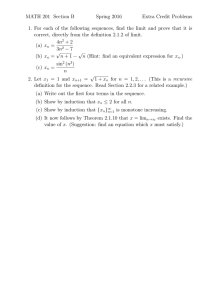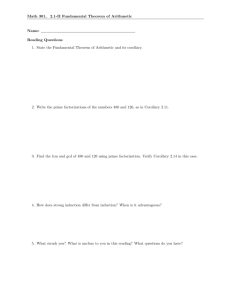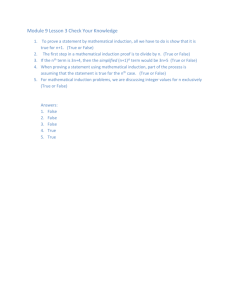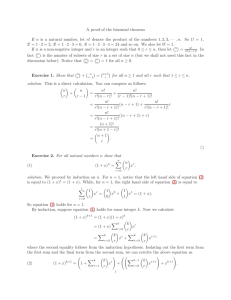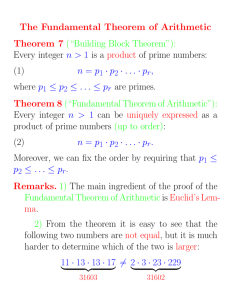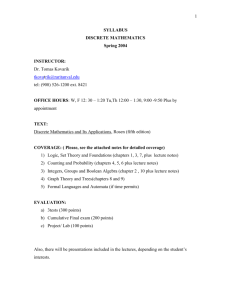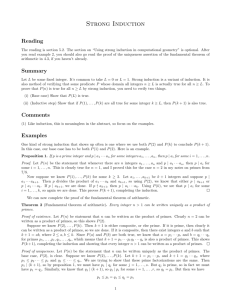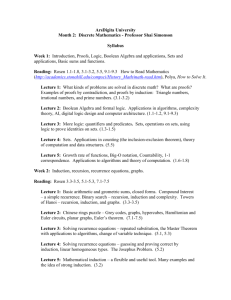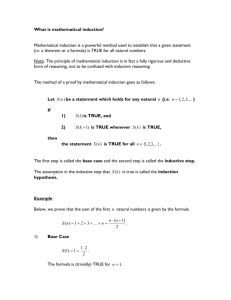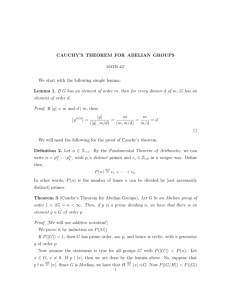Lecture 11
advertisement
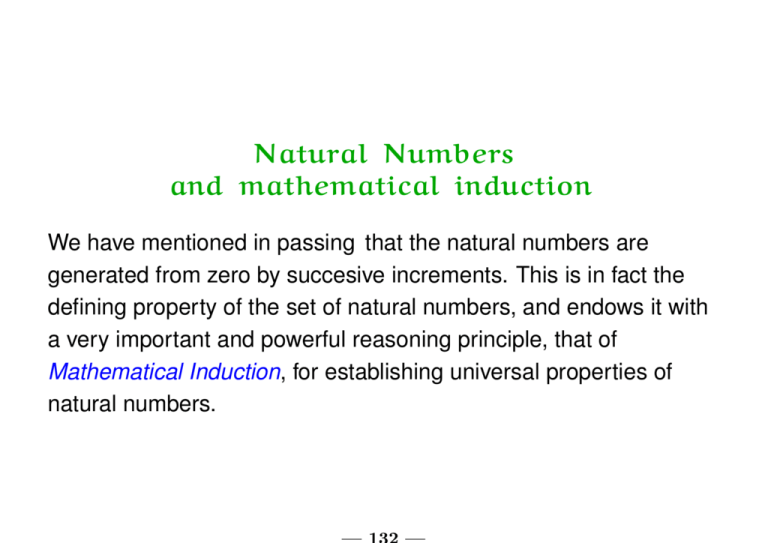
Natural Numbers and mathematical induction We have mentioned in passing that the natural numbers are generated from zero by succesive increments. This is in fact the defining property of the set of natural numbers, and endows it with a very important and powerful reasoning principle, that of Mathematical Induction, for establishing universal properties of natural numbers. Principle of Induction Let P(m) be a statement for m ranging over the set of natural numbers N. If ◮ the statement P(0) holds, and ◮ the statement ∀n ∈ N. P(n) =⇒ P(n + 1) also holds then ◮ the statement ∀m ∈ N. P(m) holds. Binomial Theorem Theorem 29 For all n ∈ N, n (x + y) P ROOF : = Pn k=0 n k · xn−k · yk . Principle of Induction from basis ℓ Let P(m) be a statement for m ranging over the natural numbers greater than or equal a fixed natural number ℓ. If ◮ P(ℓ) holds, and ◮ ∀ n ≥ ℓ in N. P(n) =⇒ P(n + 1) also holds then ◮ ∀ m ≥ ℓ in N. P(m) holds. Principle of Strong Induction from basis ℓ and Induction Hypothesis P(m). Let P(m) be a statement for m ranging over the natural numbers greater than or equal a fixed natural number ℓ. If both ◮ P(ℓ) and ◮ ∀ n ≥ ℓ in N. ∀ k ∈ [ℓ..n]. P(k) hold, then ◮ ∀ m ≥ ℓ in N. P(m) holds. =⇒ P(n + 1) Fundamental Theorem of Arithmetic Proposition 74 Every positive integer greater than or equal 2 is a prime or a product of primes. P ROOF : Theorem 75 (Fundamental Theorem of Arithmetic) For every positive integer n there is a unique finite ordered sequence of primes (p1 ≤ · · · ≤ pℓ ) with ℓ ∈ N such that Q n = (p1 , . . . , pℓ ) . P ROOF :
